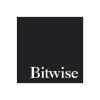 Fidelity reapplies for spot Bitcoin ETF despite 2022 rejection
Fidelity reapplies for spot Bitcoin ETF despite 2022 rejection Fidelity reapplies for spot Bitcoin ETF despite 2022 rejection
Fidelity first filed its application in 2021, but it was rejected by the SEC in January 2022 — along with other spot Bitcoin ETFs.

Cover art/illustration via CryptoSlate. Image includes combined content which may include AI-generated content.
Fidelity Investments refiled its application for its spot Bitcoin exchange-traded fund (ETF), called Wise Origin Bitcoin Trust, on June 29.
Fidelity first filed its application in 2021, but it was rejected by the SEC in January 2022, along with other spot Bitcoin ETF applications. To date, no institution that has filed a spot Bitcoin ETF application has received approval.
However, a wave of institutional interest appears to have been sparked by BlackRock‘s spot Bitcoin ETF. Fidelity is the latest to join a spate of such re-applications sparked by BlackRock’s own application earlier in June.
As of June 29, there are now nine pending applications for a spot Bitcoin ETF submitted with the SEC. The other applications were filed by Ark Invest, 21Shares, Bitwise, WisdomTree, Invesco, Valkyrie, and VanEck.
All companies’ applications — excluding BlackRock — have been denied by the SEC in the past two years. BlackRock itself has a long history of ETF approvals — with 575 ETFs approved and only one ever rejected — which has made markets optimistic that this application, too, will be approved.
The SEC has maintained that a product with direct exposure to Bitcoin is unsafe for investors because there are not sufficient guardrails in place to prevent market manipulation. However, according to Evolve ETFs’ chief investment officer, Elliot Johnson, the key differentiating factor in BlackRock’s application is a surveillance agreement that allows for its trading activity to be monitored by NASDAQ. This level of surveillance, Johnson claimed, is what can effectively prevent such manipulation.
Courts have questioned the watchdog’s reasoning in the Grayscale vs. SEC case and called its logic flawed because it allows ETF based on Bitcoin futures. However, since the case has yet to conclude, it is unclear whether it will have an impact on the current stance toward a spot ETF.




























































































































